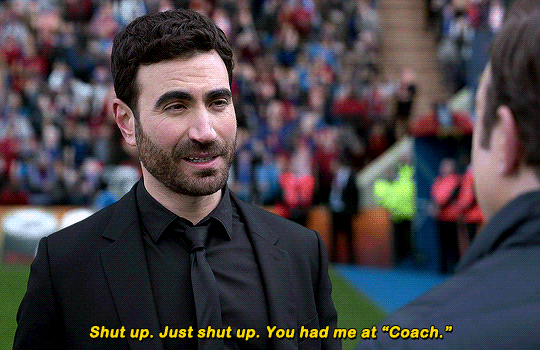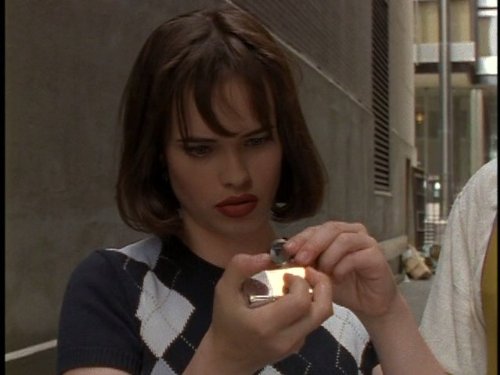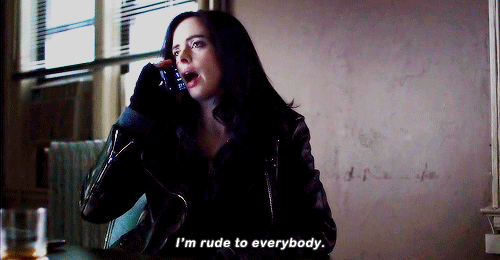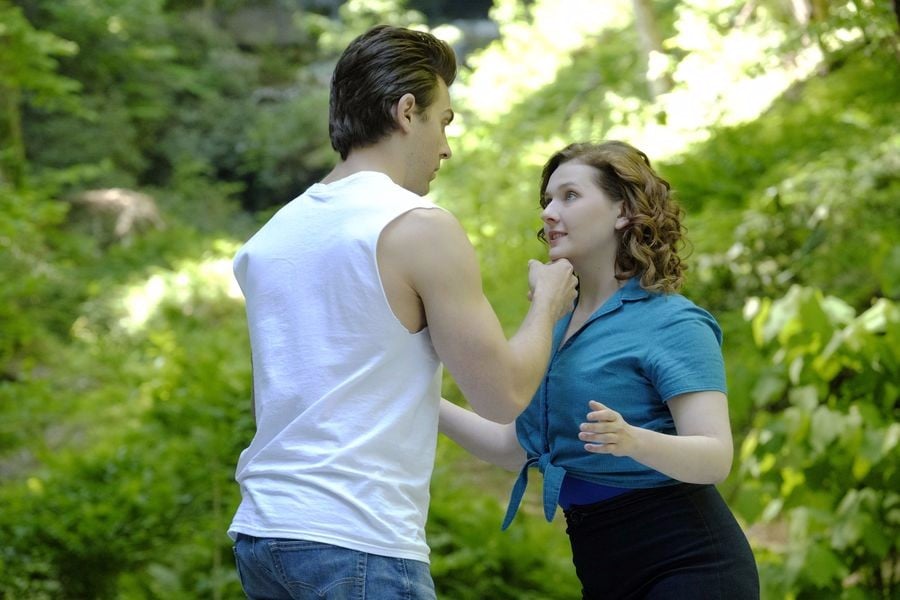When you think back on 2020, you probably don’t remember much fondly. It’s hard to recall January, when we were all hopeful and naïve about what the year would bring. And since the beginning of the year, so much media has come out that you might find yourself paralyzed by what to watch. If you’re anything like me, starting a new show in a dumpster fire year may feel daunting. You’ve likely returned over and over again to shows that bring you comfort, choosing to wrap yourself up in their predictability rather than risk watching something new.
While I highly recommend a lot of new shows this year (such as I May Destroy You, Lovecraft Country, Ted Lasso, Never Have I Ever, Little Fires Everywhere, etc.), the one I’m going to focus on is easy to miss because it’s branded as a teen show — Julie and the Phantoms.
You may have seen the trailer and thought, “There’s no way a show about teenagers in 2020 is good.” It is, and you don’t need to be a teenager to appreciate or engage with the content. But the series is more than just good: it’s a hopeful, sweet, endearing piece of media that we need to end this year.
It deals with relevant subject matter in thoughtful ways.
Since Julie and the Phantoms is branded with a teenage audience in mind and its central character, Julie Molina (Madison Reyes), is a high-school student, we see a lot of her life through that lens. Apart from boy drama and high-school classes, the majority of the show’s subject matter centers around the idea of grief and healing.
Julie’s a talented singer and songwriter but when we meet her in the pilot, “Wake Up,” she’s stopped playing music after the death of her mother. She’s on the verge of getting kicked out of her school’s music program because she still can’t play without getting emotional. The fact that grief paralyzes us in various ways is something critical for a younger generation to understand. Grief doesn’t always look like crying (though Julie and other characters express grief in that way too); sometimes grief looks like numbness. Julie lets the thing she loves slip away because the person she loved is gone.
But then three ghosts are introduced into Julie’s life and she begins to play again; soon she’s not just living to get through each day — she’s coming alive again. Grief and healing are really tricky subjects for any of us to navigate because no two people handle pain the exact same way. We see Julie break down, but we also see her happy. We see her talk about getting counseling after the death of her mother, and I think that’s a really important thing for everyone to hear: seeking professional help is okay when dealing with a loss. And it’s okay no matter if you’re struggling with loss or not.
One of the ghosts, Alex (Owen Joyner) talks about how he struggles with anxiety, which is also something really important to see represented on television. He visibly fidgets, panics, and also learns how to cope with his feelings in healthy, productive ways.
Emotions are an integral part of who we are, and it’s important that we learn how to process and deal with them in helpful ways. I’m glad that Julie and the Phantoms doesn’t shy away from the hard stuff and instead embraces it.
Serotonin-boosting media is a necessity for 2020.
Julie and the Phantoms will just make you feel good (I’d bring tissues for “Unsaid Emily” though, just a fair warning), and in this really difficult year, it’s important for us to remind ourselves of hope and joy. The stories in the nine episodes — yes, it’s only nine episodes so you’ll be done with this pretty quickly — are funny, heartwarming, and lead to some lovely character growth.
The fact that Julie is the only person who can see the ghost guys when they’re not performing leads to some early-on hilarity and panic. The boys have their own senses of humor and quirks. And the fact that they died in 1995 means that they missed a lot — leading to one of the funniest exchanges where Reggie (Jeremy Shada) learns that they made way more Star Wars movies than he’s comfortable learning about.
If you need something that will fill you with joy, silly and sometimes cheesy humor, genuinely heartwarming moments, and character growth... this might be the show for you.
The entire cast is adorable, endearing, and incredibly talented.
I talked about her briefly above, but there would be no Julie and the Phantoms without Julie herself, played by newcomer Madison Reyes. When I tell you that this girl knocks it out of the park for being so young, I mean it. The characters tell her that she’s a star, but she really is. What impresses me most about Madison is the amount of space she occupies for being so young — she fills absolutely every scene she’s in. She owns the stage when she steps onto it. There’s nothing about her that shrinks back; she is the lead of this show and her presence is absolutely lovely.
Julie’s ghost band is absolutely wonderful too. And the reason why Julie and the Phantoms as a band have so much chemistry is because they truly were cast as a band. When you watch the behind-the-scenes process, you witness the chemistry unfolding. They were put through the wringer — not just being asked to play and sing together, but doing improv and acting together. The band boot camp truly brought this group together, because the show wouldn’t work if it didn’t feel true and earned.
I’d be remiss if I didn’t talk about the boys. Charlie Gillespie who plays Luke Patterson, the lead singer of the band, is immensely talented. I was consistently fascinated by him as an actor throughout the series but never more so than in “Unsaid Emily.” Not only does he absolutely bring the “lead singer of a 90s band” vibe fully to life, but he also has the ability to communicate Luke’s own softness, grief, and regrets clearly on screen. When he cries, I cry.
Not only that, but Charlie has the whole “leading man in a rom-com” thing down already for only being 22. You just feel things when Luke looks at Julie. And it’s clear that he understands his character, can communicate the complex emotions of romantic longing and sadness and pride all without missing a beat... or a note. I’m just ready for his career to take off as much as Zac Efron’s did post-High School Musical. He deserves every good thing, and his chemistry with everyone — a wonderful in-show joke — is off the charts, but his gentle understanding of Luke and Julie’s relationship makes the show so watchable.
Owen Joyner as Alex is just absolute perfection too. Alex is a bit anxious and the only one of the band who’s seeming to experience such complicated feelings about being dead. His relationship with Willie (Booboo Stewart) is so pure and sweet, but Owen’s ability to truly feel Alex’s pain, longing, anxiety, and joy is what makes him so wonderful to watch. He is sensitive while also still being grounded in reality. His comedic timing and sarcastic wit are absolute perfection (I relate hardest to his personality, let’s be real here), and it’s what makes Alex so special, relatable, and funny. He has a big and good heart, and he only wants the best for the people he loves.
Plus I dare you not to burst into the biggest grin when Owen Joyner joins the stage to dance during “All Eyes on Me.” I DARE you.
But I also have to mention, yet again, Jeremy Shada as Reggie. Because Luke and Alex have romantic interests in Julie and Willie respectively that are focal points of the first season, we often lose Reggie in the discourse about the Phantoms, but he’s an absolute delight. While not often the brightest, Reggie’s heart and earnestness are what make him so special. He cares a lot about others, and his vulnerability and willingness to just BE with others can often get overlooked. But it’s important that Reggie so sweet and concerned about others. His storyline with Julie’s dad, Ray (Carlos Ponce), is so wonderful and heartfelt. I love Reggie because his comedy is so silly but his heart is so big.
Rounding out the cast is the aforementioned Ray. Carlos Ponce doesn’t always have a lot to do in the show, but that’s okay: his acting is so great that we get the sense of who he is in the scenes between him and Julie; we understand who Ray is not only as a father (incredibly supportive, concerned and loving), but also as a person. He’s grieving the loss of his wife, and he visits the music studio often to talk with her. If the show is renewed for a season two, I need more of him and also Carlos (Sonny Bustamante), Julie’s younger brother. They are both so supportive and sweet.
Flynn (Jadah Marie) is Julie’s best friend and if you’ve ever had a friend who’s been with you since you were young, you’ll feel transported back to your high-school days with these two. From the moment she appears on screen, it’s evident that she and Julie have a supportive-but-also-make-fun-of-each-other bond; I know I was reminded of the fact that my best friend and I have known each other since we were about Julie and Flynn’s age!
Flynn is more than just a ride-or-die friend though; she’s part of the Molina family. Ray asks her to look out for Julie and to tell him if something seems off. She’s like the unofficial third Molina child, and I love that. Flynn tells Julie hard truths and helps before she’s even asked to help. That’s a best friend! Plus, Jadah Marie has such great comedic timing and facial expressions. I need more of her next season!
Most of the cast are virtual unknowns (pause, because I have to briefly mention the one cast member I knew going into the show: Cheyenne Jackson, who has a stellar voice and plays a fabulous villain). But it’s clear that these talented individuals are going places. And I can’t wait to point at my television or movie screens and say: “I knew them when they were in Julie and the Phantoms!” (And I swear, I will write Charlie Gillespie a leading role in a rom-com if Netflix pays me money to do so. This is just a shameless plug for you, Netflix. Hire me.)
The music is incredibly catchy and the choreography is lovely.
Whenever you see the name “Kenny Ortega” associated with a project, you can expect quality and that’s exactly what you get in Julie and the Phantoms. Not only is the choreography so great because of its homages to his past projects like High School Musical, Dirty Dancing, and Ferris Bueller’s Day Off, but it’s just all genuinely realistic. Everything about the musical performances in the show feels so natural. I also think it’s incredibly important that Kenny Ortega is part of this project because his history with younger actors proves that he doesn’t see their inexperience when he looks at their performance — he sees potential.
Charlie Gillespie and Madison Reyes actually wrote one of the songs in the show, “Perfect Harmony,” for their characters during their down-time on set. Kenny is an incredibly seasoned director and a number of other directors might have said and/or thought: “Cute... but stay in your lane, kids” but Kenny didn’t; he put the song in the show. He encourages his actors to understand their characters, to improvise, to learn and grow and to not be afraid of that.
How do I know that? You can see that spirit shine in the final product of the show. It seems clear that the atmosphere behind-the-scenes was collaborative and supportive — an important space to help younger actors, and seasoned ones alike, thrive.
I dare you to watch/listen to “Edge of Great” without immediately bouncing in your seat. I adore “Wow,” which is performed by Dirty Candy in the show, a teenage band fronted by Carrie (Savannah May), former friend-turned-enemy of Julie and Flynn. That band’s songs feel so Katy Perry-esque, but the show never sets up Dirty Candy vs. Julie and the Phantoms to be an argument of which is the better genre: it just points out that both are valid musical genres, and both can be celebrated!
I doubt you can listen to “Unsaid Emily” without crying, I hope you all experience the joy of rocking out to “Now or Never,” and feel all the emotions well up inside of you during “Stand Tall.”
Representation matters.
In the behind-the-scenes video that Netflix did when the actors were in the casting process, Madison Reyes mentioned that the role models she had to look up to were usually all Caucasian. I know we’ve heard that before, but keep in mind that Madison is only 16 years old — that in the past decade or so, we still haven’t really progressed to the point where teenagers now can remember a time they saw themselves represented on film or television.
Julie Molina and Madison Reyes are proudly Puerto Rican, and that matters. It matters for young women who will see Julie — the lead singer of a band — and recognize themselves. The world of Julie and the Phantoms feels very much like it’s representing the world today. There are characters of color and it’s normal. There’s LGBTQ+ representation (and among POC too!), and it’s normalized. Alex’s storyline, for the most part, is a joyful one; it’s a chance for queer kids to see that happiness is possible (and yes, shh, I know both Alex and Willie are technically ghosts but it is still important).
It’s important for people to be able to see themselves in the media they consume, and it’s extremely important for them to see the world they live in reflected in television and film. The world isn’t filled with only Caucasian people or straight people or upper-class people. It’s filled with all kinds of people from all backgrounds, and I love that Julie and the Phantoms is making a conscious effort to reflect that.
Hopefully I’ve convinced you to head over to Netflix after you’ve finished reading this to watch Julie and the Phantoms. And Netflix... where’s that season two renewal? Until then, I’ll be bopping along to the songs from this charming show. Sound off in the comments below if you’ve watched the series and let me know your thoughts!












































